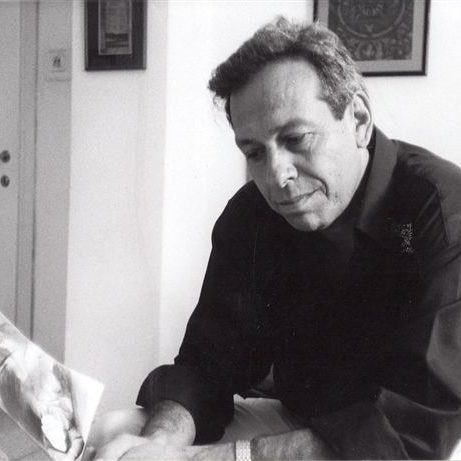Fear of emotional intimacy as a mental trap
Emotional intimacy, a beautiful and challenging journey, involves getting closer to another person, a flow of loving energy, and a sense of attraction. It is created through mutual sharing and exposure, overcoming shame, and navigating conflicts. Many people fear the risk of attachment. Intimate rapprochement also requires relinquishing some control and/or autonomy. The sense of autonomy behind the fear that arises can be illusory and defensive, as if the person feels he does not need anyone. Overcoming this fear demands immense courage and a deep understanding of oneself. But the beauty of emotional intimacy, once achieved, can fill us with hope and optimism.
And there are, of course, men or women who have not finished puberty, are immediately afraid of commitment and smell the seriousness or task of approaching where it will lead or see the exact mirror image of task and seriousness in the other. In other words, what immediately scares them is the future and commitment, when in their imagination, a picture of family, children, livelihood, and elements already pre-rapprochement around them in the initial stages appear. Some are only engaged in conquering, and that is their strongest need – conquering.
In any case, alongside the acceptance of something new, intimacy also requires the sacrifice of some consequences, pseudo-independence, a kind of freedom, and defenses of ideal or legendary imaginations. This can be called a willingness to make a sacrifice to get closer. However, this sacrifice is not in vain. It paves the way for a transformative journey toward emotional intimacy that can motivate and encourage us as we discover our true selves and experience profound connections.
In psychological language, creating intimacy requires us to give up a certain number of fantasies, the mental defense and survival systems that surround us, and the risk of even illusory strength that we have, in that we feel as if we need no one. Intimacy also reveals to us our fear of the possibility that by getting emotionally close to the other, we will encounter ourselves in our weaknesses, whether through anxiety about emotional involvement or fear of abandonment: we will get closer, and then it will end and be abandoned or guilt anxiety about being abandoned ourselves. The anxiety of approaching can be from exposing inferiority that we have absorbed in our lives; it opens our possible vulnerability, the rise of complexes and the exposure of childlike parts within us and even the need for the other, his attitude, his approval or the need for the mirror gaze that we hide. It sometimes also develops a fear of dependence and need
Fear of intimacy, getting closer to the other, is sometimes even more than getting closer, but attachment. This is especially true if, in the background, there is an insecure attachment in advance, a form of connection experience that the person brings with him from previous significant connections. Together, these can easily create almost systematic avoidance and recurring patterns in the interactions, making it impossible to achieve intimacy.
In the article, we will address situations of fear of intimacy that cannot necessarily be explained through an essential component of insecure attachment or an inherent inability to connect but fears of closeness and emotional intimacy that arise even before deep attachment
.
We often hear about encounters between two people looking for a connection that is initially exciting, passionate, good, interesting, hopeful, implications, and fantasy. These encounters end very quickly or dissolve when a rapprochement begins to form, and there is a need to share and be exposed, to devote themselves, or to contain the other.
The reasons for the break and the failure of the relationship heard by some people seem logical and supposedly always based on rational arguments: it was spoonful, pleasant, interesting, and even promising, but I didn't think she was attractive enough. He wasn't smart enough because he or she didn't show enough enthusiasm, or because they wanted me too much because he didn't inspire confidence, or she wasn't hot or sexy enough. Or there doesn't seem to be enough enthusiasm from the other side: I don't interest him enough, or he's too self-centered or stingy, or this or that detail bothers me in a way in facial speech or indifference, various and strange reasons that keep coming up.
Arguments that sound like many excuses and are repeated after the first enthusiasm! And when, as a therapist, you hear similar excuses repeatedly, you begin to realize that there is an unsolved, hidden, and unconscious problem here. The recurring perception of one detail or another, repetitive ambivalence, or the finding of flaws always recur after the first enthusiasm begins to sound like a problem related to emotional intimacy. An intimacy that they do not know how to create, a problem that is feared or projected onto some disturbing factor or excuse.
The person who makes excuses, tells himself recurring stories, and projects on the other either the shattered idealizations or the fears, problems, and inferiorities. Alternatively, the one looking for the perfect one to do it to him…All kinds of recurring expressions tell us that there is a problem with intimacy, getting closer or exposed, commitment, and maybe the ability to love.
But, these recurring stories, either I can't find or don't want me, or I'm out of luck, indicate a recurring problem that is unconscious of the person himself.
Therefore, repetitive stories almost always conceal an unconscious problem, whether in the emotional realm, an unresolved complex, a deep and unconscious fear, and a fear of losing a survival situation or sacrificing something in the face of a life of two that poses a certain risk to the person. "What am I going to get versus what am I risking
The stories' content, repeated and heard, can also hint to us in what area the unsolved problem, complex, or fear of exposure exists alongside an unresolved conflict between different needs and even sometimes conflicting or not necessarily go together. For example, there is a need for dependence versus control, emotional security versus economic security, and aesthetic need versus intellectual or emotional need. A need for freedom versus a need for security
It is worth checking what the planes are where the cards are shredded, and the connection cannot continue.
The plane of emotional security or inferiority, the emotional and intellectual dimension, the physical aesthetic side, the existential financial sphere, the degree of status and perception of strength, durability, and stability of the other on which one wants to rely—freedom and security at the same time.
One of the pieces of advice for people who meet with multiple partners, who create physical intimacy rather than mental intimacy, or who always focus on sex rather than relationships or those who regret and disappear many times, or who want physical relationships in the dark or vague relationships without emotional rapprochement, is to ask themselves what they want, how afraid they are, how exposed or exposed they are, how much they hide and what their fears of rapprochement are. Involvement, commitment, engagement, or disappointment that will come later in the relationship. Or their conflicting conflicts about the relationship
Given the depth of their fears and their understanding, it will be difficult for them to be busy alone without help, but identifying the recurring patterns and recognizing the nature of situations in which one begins to doubt or not believe the other, run away, make repeated excuses, or reach the same situations over and over can be the beginning of the process of understanding
The process is recognizing that there is a problem here, and it is not the other's but theirs; the problem starts with you.
And regarding the problems themselves that generate the fear of intimacy, they can be divided into several types:
Fears associated with abandonment or rejection. Dependence or independence or over-control
Fears associated with exposing inferiority, manifesting flaws or insecurity
Problems around sexuality and physical relationships in general.
Fears associated with not trusting another in the relationship or the self as capable
A hidden wish is that my partner be the one to repair, heal, stabilize, lift, and arrange my life It has always been missing in my life
The narcissistic problem means that the partner will give me the answer and fill in the lack of amazing, wonderful ones, or I will fill in something through him that I am missing. At the same time, they sometimes wish to conquer and achieve the most beautiful and appreciated
Unfinished problems of inseparability from one of the parents, fathers, or mothers who are or are still very emotionally connected to them are the central connection that provides any or more problematic unresolved relationship with one of the parents. This connection is involuntarily dragged to all other connections
Problems created from previous relationships or vulnerability with partners. Especially the first contact in which some trauma was created within that innocence of first love. Abusive first love can add serious inhibitions in subsequent engagements.
Of course, there are also various cultural complexes and intellectual, cultural class inferiority or superiority that do not allow for the liberated attachment that arises from one's true self
Identifying the area of the problem and the unique problem itself will give direction to the recognition and initiation of internal examination work
The questions that help in situations such as
* What is the recurring pattern I see in rejections or avoidances to understand the ambivalence and contradictory tendencies that arise in me? What I usually tell myself
* What do I avoid, fear, or be careful about? What fears arise that someone I like
* What do I project onto the other, the other, or the situation, and how do I distort it in my favor
* Analyze what bothers and see within it the excuse and avoidance
* What is my fantasy that I would like to realize, to know the fantasy that I will have to give up
* To what extent do I recognize a pattern of past relationships with one of my parents or avoid a pattern I am familiar with
A problematic first love, vulnerability from previous relationships or what I couldn't achieve in the youthful love that remained with me as an unresolved wish
What fatal mistake am I afraid of? What am I afraid I will find myself making a mistake I made and falling into the trap


